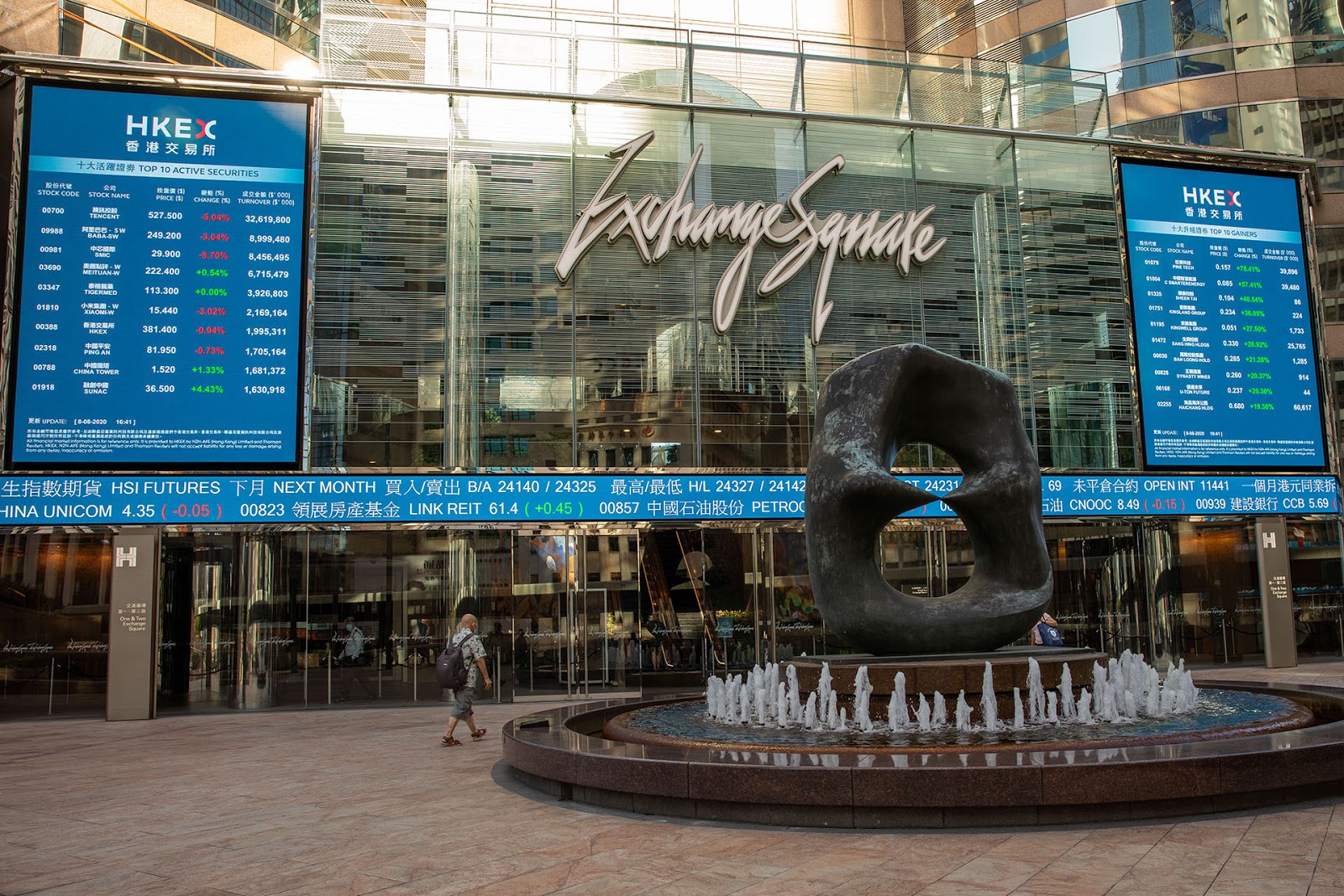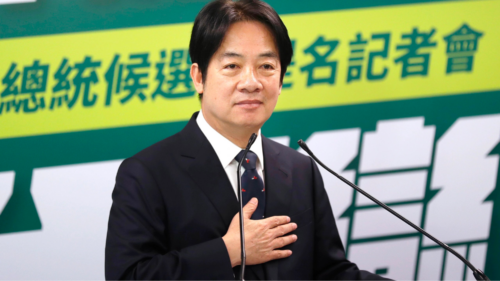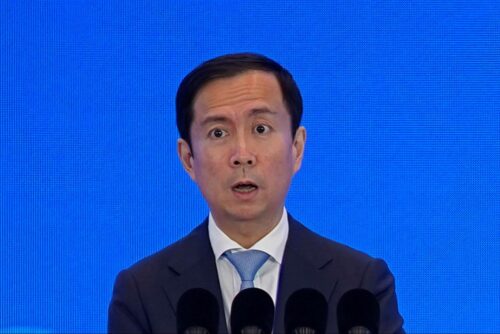The Hong Kong Stock Exchange’s half-trillion-dollar opportunity
The Hong Kong Stock Exchange used to lean on its finance and banking sector, but political turmoil has forced it to change. The exchange may have found salvation in China’s tech giants that seek refuge as they scurry away from America.

Hong Kong’s national security law has precipitated a wave of chaos and uncertainty that is, among other things, bad for business. That does not mean, as President Trump would suggest, that the city is doomed to financial ruin. The Hong Kong Stock Exchange (HKEX) is a testament to Hong Kong’s economic adaptability, even with its special status revoked by the U.S.
Possibly foreseeing China and America’s souring relations, HKEX has spent the past few years transforming itself into a comfortable nest for many of China’s U.S.-skeptical tech giants to fly home to. The project has been a success — by July of this year, the city had drawn the attention of Chinese moguls with a combined net worth of $182 billion to make secondary listings for their companies in the city. Among the most notable initial public offerings (IPOs) in Hong Kong are:
- Alibaba, China’s leading ecommerce company, with a nearly $13 billion listing
- JD.com, Alibaba’s competitor, with an approximately $4 billion listing
- Netease.com, a gaming company that drew around $3 billion
- Xiaomi, a phone maker, at around $5 billion
- YumChina, a restaurant and food distribution company, with a $2 billion listing
In the future, Alibaba’s fintech company, Ant Tech, also plans to list — and that company’s value could reach up to $210 billion.
IPOs of this magnitude in Hong Kong eclipse those in mainland stock markets. SMIC, China’s largest chipmaker, held the most valuable IPO in the mainland’s history this July. But even its $7 billion opening day pales in comparison with the giants, like Alibaba, that Hong Kong has attracted.
These tech listings were then compiled, on July 26, into a new composite of 38 of China’s largest technology companies, dubbed the Hang Seng Internet and Information Technology Index (HSIII). Although these 38 are only a small fraction of the over 2,100 companies listed in Hong Kong, the companies on the HSIII are so massive that they account for approximately one-third of the exchange’s total $5.3 trillion market capitalization.
Asia’s troubled financial capital may be able to use this index as a life raft for its entire economy, including its lagging financial sector. Per Fortune Magazine:
U.S. investment bank Jefferies Group estimated in a recent report that U.S.-listed Chinese companies could bring $557 billion to Hong Kong through secondary listings. The influx of capital will trickle down to Hong Kong’s financial services sector too, providing huge incentives for foreign banks to maintain a presence in Hong Kong — despite ongoing political turmoil.
How exactly has Hong Kong’s exchange found opportunity in chaos? A series of lucky windfalls and policy shifts can explain.
Washington is scaring off China’s entrepreneurs
HKEX has weathered the national security law thanks in large part to a force out of its control: the U.S. Senate. Many of the largest tech listings on the Hong Kong Stock Exchange are secondary listings from companies seeking a potential safe haven in case U.S.-China relations really go south — an increasingly likely scenario.
This May, a bipartisan group of U.S. senators wrote a bill — S.945 — that would give the Security and Exchange Commission (SEC) power to demand that Chinese companies that are listed in the U.S. release their audit reports, or otherwise delist them. Michael Wu, a senior equity analyst at Morningstar Investment Management, told Fortune Magazine that this U.S. Senate bill is “probably the key reason for the recent spate of Chinese companies looking to do a secondary listing in Hong Kong.”
This worst-case scenario — a state-enforced mass exodus of Chinese companies from the NYSE — now has a set date after the Trump administration urged the SEC to delist non-compliant Chinese companies by January 2022.
Should every company named in the bill exit the U.S., the loss would be around $1 trillion, or 3% of the total market cap in the NYSE as of June this year.
Hong Kong allows companies to keep their secrets
The new Senate bill was designed to crack down on the fraud that many regulators and investors believe is endemic to Chinese firms listed on the NYSE. The bill only gained traction after Luckin Coffee, the upstart coffee giant established in October 2017 and once known as the “Starbucks killer,” was found to have inflated its revenues by $300 million during 2019 and 2020.
As it stands, Chinese companies are not obliged to hand over audit documents to the U.S. Security and Exchange Commission (SEC), since Beijing designates these reports as “state secrets.” As a result, many claim that a “substantial majority” of Chinese companies are steeped in unchecked fraud. Some firms have dedicated themselves entirely to uncovering this fraud and shorting those companies involved, as captured in the 2017 film The China Hustle.
No one can tell the exact depth of Chinese fraud, but it is true that Chinese companies are held to looser standards than others thanks to Beijing’s protection. Since the Luckin Coffee scandal, Beijing has taken steps to improve the image of publicly traded Chinese companies, but a bad reputation built from years of scamming and inflated revenues will be tough to shake.
The irony of the situation is that even if the Senate bill makes it through the House and gets put into law, it may do very little to hold Chinese companies accountable. The issue is that the globalized nature of capital markets makes delisting a toothless punishment. If threatened in America, these firms can offer shares outside of Washington’s jurisdiction, which U.S. investors will still be able to purchase. This is where Hong Kong becomes useful.
CEOs can maintain their iron grip
The Hong Kong Stock Exchange did not squander the opportunity presented by Washington’s assault.
The exchange started offering dual-class shares in April 2018. This gave previously resistant Chinese tech startups assurance that they could list in Hong Kong without sacrificing their iron grip on their company’s operations.
In a standard listing, one share buys one vote in the company’s boardroom. This means that entrepreneurs are accountable to major investors, who can be troublesome for a variety of reasons: They expect consistent growth, demand accountability, and limit risk-taking.
Dual-class shares can be offered without extending any voting rights to new investors. Therefore, investors in a dual-class listing (like Alibaba, for example) enjoy none, or a limited version of the power they would enjoy in a one-share, one-vote company. Tech CEOs in the U.S. and China have generally preferred this arrangement.
HKEX had previously resisted such a move for the sake of limiting risk and preventing fraud, but after losing Alibaba’s IPO to New York in 2014 explicitly because the company wanted a dual-class listing, the exchange learned that the market had no patience for this particular standard.
HKEX’s new niche
With the barrier to dual-class listing removed, China Inc. has found comfort in the Hong Kong Stock Exchange — in spite of all the baggage. There are a number of reasons that HKEX distinguishes itself from other markets, even without its former special status granted by the U.S. government.
For one, the Hong Kong dollar is still pegged to the U.S. dollar, offering stability and protection from a cross-currency reselling scheme known as arbitrage. This is preferable to mainland markets, which are traded in the ever-fluctuating yuan.
What’s more, thanks to Stock Connect programs with Shenzhen’s ChiNext and Shanghai’s stock exchange, Hong Kong–listed firms can soak up funds from mainland investors without having to list in China’s younger stock exchanges. Since mainland exchanges remain hesitant to allow influxes of foreign capital, Hong Kong remains uniquely placed as a gateway to the Chinese market for overseas investors.
Compared with its mainland counterparts, the Hong Kong exchange is well established. It has stricter standards for listing based on a company’s track record and net profit. Mainland exchanges can also delist failing or fraudulent companies without warning, creating a greater risk of an investor’s capital disappearing entirely. As such, Hong Kong’s stock exchange offers a guarantee of stability that isn’t found in mainland markets yet.
Even without its special status as the “gateway to Asia,” there are strong indicators that Hong Kong remains a lucrative market for Chinese companies that want to stay close (but not too close) to home.






